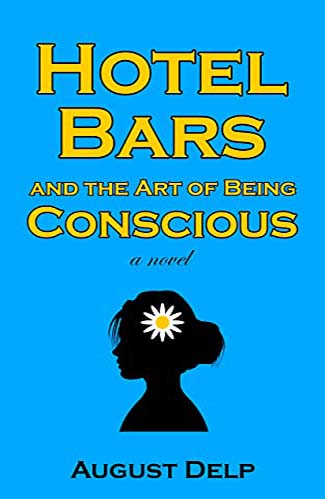
Bartending as Research
A thought experiment on finding meaning in mid-life and beyond
Hotel Bars and the Art of Being Conscious by August Delp is more of a thought experiment than a novel but is a thought experiment well worth reading.
After Daisy drops her teenage son off at boarding school, she’s officially an empty nester. What should she do with the last phase of her life, the phase past child rearing, mate seeking, and striving?
These questions are pretty first world, and Daisy is a highly fortunate first world-type. She played her cards right in the dot.com era and has no economic concerns. So seated comfortably at the pinnacle of Maslow’s hierarchy of needs, highly cerebral, alone but not lonely Daisy contemplates life.
In the beyond stage, though, a person doesn’t really need anyone else. At that point, all you really need to do is die, and everyone dies alone.
Daisy decides to seek meaning through experience, and the experience she chooses is bar-tending. Sure, bar-tending is social, and she’ll meet all sorts of interesting people, but Daisy is also an alcoholic, highly functional, but an alcoholic none the less. And interestingly, as she dissects her personal meaning of life, she’s entirely untroubled by her alcoholism. Much and varied alcohol is convivially consumed in the course of this tale without ill effect to the point that this book might not suit a reader in recovery.
Through bar-tending, she encounters several characters who aid her search, and the novel includes a subplot revolving around scientist Bianca. The subplot doesn’t add much interest, but the character adds philosophic and scientific street cred to some of the conversations.
But Daisy must defines her meaning of life alone, and the result is interesting, especially for readers traversing middle age and points beyond.
